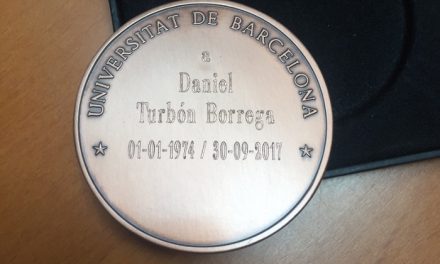José Manuel Calavia, full academician of the Royal European Academy of Doctors-Barcelona 1914 (RAED), participated on May 28 as a speaker at the conference “Notariado y Empresa. Una visión práctica” (Notary and Company. A practical vision), organized by the Notarial Association of Catalonia and the Catalan employer Promotion of Work. The day was chaired by the dean of the Notarial Association, Joan Carles Ollé, and the president of Promotion of Work, Joaquim Gay de Montellà.
In his speech, the academician examined the family protocol and the succession of the company from a practical perspective and reflected on three essential questions in the succession of the family business: who are the owners of the family business and who will be the future owners? What remunerations and economic amounts do family members of the family business perceive and have to receive in the future? And who exercises and who will exercise the government of the family business?
Calavia addressed both the legal instruments in order to convey ownership of the family business and the most widespread practices, highlighting the advantages and disadvantages of each of them. He also referred to the need to clearly distinguish between ownership and government of the family business. When reviewing the most widespread practices in terms of remuneration and other economic amounts assigned to family members. The speaker made special reference to a series of advice and warnings.
Regarding the remuneration of the administrators, three pathological assumptions had an impact: amount of the remuneration well above the market, almost total absence of dedication to the position and lack of preparation and minimal training. These three assumptions can be given separately or jointly and, in many cases, only affect one of the administrators of the family company, but not the rest.

Dr. José Manuel Calavia
The 2014 reform of the rules of the capital companies in Spain has incorporated a set of criteria in order to channel and limit the amount of the remuneration of the administrators: reasonable proportion with the importance of the company, the economic situation that had at any time and the market standards of comparable companies, aimed at promoting the long-term profitability and sustainability of the company, as well as incorporating the necessary precautions to avoid the excessive assumption of risks and the reward of unfavourable results.
Finally, he recommended for the non-listed companies to establish the framework and structure of the administrative body. “All the codes of good governance recommend that the administrative body be structured in a collegiate way, that is, in the form of board of directors, but for smaller companies, it’s advisable, as a previous step, to create an advisory board that doesn’t perform the functions of administrator and does not have supervisory functions over them either, but the sole administrator or, as the case may be, several exercise their functions as such but receive the advice of specialists integrated in the advisory board -he said-. In the family business structured in the form of mercantile society, it’s necessary to distinguish between the property bodies (family council) and the management and administration bodies of the mercantile society (administrative body) .The organs of family property are regulated in the family protocol exclusively, while that the administrative and management bodies of the mercantile society must be in the protocol as in the bylaws”.


